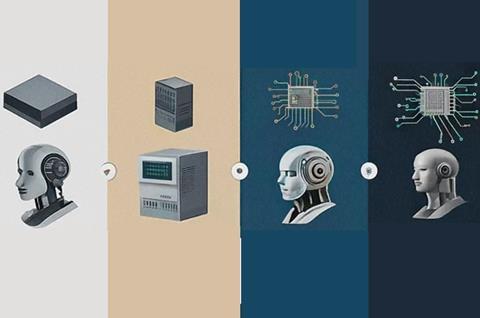Ian Blaine at Brightcove on how companies need to adapt to a rapidly changing regulatory landscape addressing copyright, data privacy, and AI transparency

As we progress through 2025, the media industry is poised for unprecedented transformation. The influence of artificial intelligence, already dominating various sectors over the past couple of years, is set to accelerate even further, offering media companies and content creators extraordinary opportunities to elevate their creative output with greater efficiency and ease.
This momentum reflects the industry’s growing recognition of AI’s potential to reshape content creation, management, and distribution in ways that were once unimaginable.
AI’s role in content creation is evolving beyond automation to become a genuine collaborator in the creative process.
In 2025, AI tools will analyse audience behaviour in real-time, offering content creators insights to shape stories dynamically, maximising engagement and emotional impact.
These tools will enable creators to experiment with narrative structures, visual effects, and other elements in ways that resonate more deeply with their audiences.
This collaborative potential underscores the importance of combining AI’s analytical power with human ingenuity. Preserving the authentic, human element within narratives will remain vital to producing the most compelling and emotionally resonant content—a principle that cannot be overlooked in the pursuit of innovation.
As AI becomes more integral to content production, establishing robust ethical standards will be critical.
Companies must adapt to a rapidly changing regulatory landscape addressing copyright, data privacy, and AI transparency.
Navigating these complexities will require media businesses to demonstrate accountability and a commitment to responsible AI use. Striking a balance between the efficiency AI brings and the authenticity audiences demand will be essential for businesses looking to grow.
To navigate the next phase of AI’s evolution, companies must cultivate a culture of continuous learning. This involves investing in the latest AI technologies and fostering responsible AI use that complements and amplifies human creativity. It requires an openness to experimenting with new tools and approaches while remaining mindful of the broader implications of AI integration.
Media businesses need to recognise the transformative potential of AI and leverage it to drive efficiency, scale content creation, and optimise distribution, all while maintaining the creative heart of their work. This balance will ensure that AI serves as an enabler of creativity rather than a disruptor.
As AI continues to transform the industry, the time is now for media companies to act decisively. With the support of the right technology partners, they can harness AI to unlock new efficiencies and achieve scalable, cost-effective growth. Furthermore, collaboration between technology providers and media companies will be essential in refining AI tools to meet the industry’s specific needs.
By embracing these trends and committing to innovation, the media industry can ensure that AI becomes a catalyst for creativity rather than a constraint.
Integrating AI can also open doors to new revenue streams, such as personalised content offerings and immersive experiences, further cementing its value.
The future is bright for those ready to embrace AI’s potential responsibly and strategically. 2025 will be a pivotal year, and media companies that adapt, innovate, and uphold ethical standards will shape the next chapter of our industry. In doing so, they will not only stay competitive but also redefine how stories are told and experienced in a world increasingly influenced by technology.
IMAGE: An AI-created image depicting the evolution of AI

Ian Blaine is SVP of Innovation & Insights at Brightcove








No comments yet